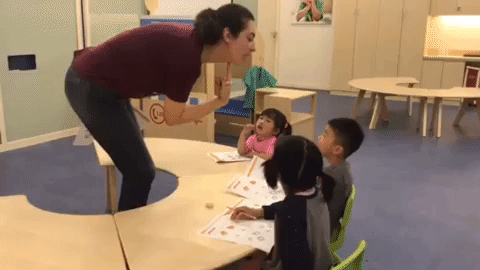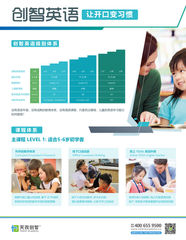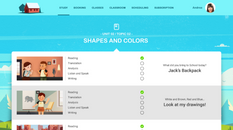Talent Academy English
Date: 2017-2018
Location: Shanghai, China
Roles: Product Owner
Organization: Talent Academy
The Problem
Talent Academy was a Shanghai-based provider of international daycare and after-school enrichment programs to children ages 3-12. In 2018 the company provided a menu of programs to 6,000 children in the Greater Shanghai area. Enrollment stabilized within the catchment areas of its five program centers, and growth slowed. Center-based expansion was a slow and bureaucratic process. Investors and the senior leadership team wanted to identify “horizontal” growth opportunities and leverage the existing enrollment base and recruitment infrastructures.
My Role
As the head of new products, I was responsible for discovering, designing, and developing new products and programs that served the learning needs of our families. I had a year-long timeline to find, propose, and pilot one or more product offerings.
Needs Discovery
I implemented the product discovery process through internal and external research. Over the winter of 2017, I interviewed a representative panel of parents and consulted instructors and sales consultants. Over 60% of our students under eight received English language instruction. In a follow-up survey, 50% of respondents said they would switch to Talent Academy if we began offering English as an option. Through secondary research, I estimated that over 90% of our target demographic would have started receiving English tutoring by 3rd grade.
The Challenge
Talent Academy provides enrichment programs. It differentiated from competitors by partnering with international organizations to offer expert-led experiences in visual, performance, and martial arts. We lacked instructional expertise in English as a foreign language.
Product Development Process
I recruited a team comprised of an instructional designer, a visual designer, and a project manager. For curriculum development, we engaged an expert in applied linguistics from the University of Michigan. An Italy-based engineering team undertook technical development led by a part-time senior developer.
Our process was deeply grounded in co-design with learners, with testing at the heart of the process. We structured sprints around “minimally learnable units” - groups of 3-lesson modules that formed a weekly learning experience and beta tested with paying learners for each module.
We evaluated children's reception to the curriculum during test lessons and used paper cut-outs and print-outs to test digital interaction on paper.
Outcomes
-
Developed and launched an initial 12 units (approximately 80 original lessons with custom artwork) of an innovative, blended learning program that combined offline, in-person experience, with online “speaking-sessions” delivered by remote instructors in the US.
-
Developed and launched a learning management platform with full functional parity to comparable products such as VipKid and TutorABC.








